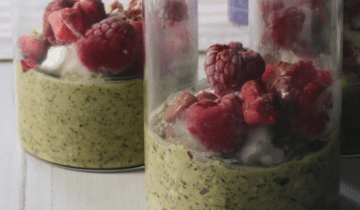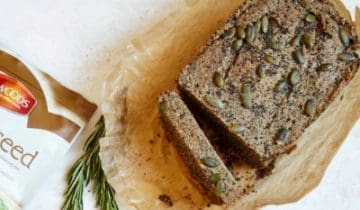Diet and nutrition are essential for our health and well-being. The current risk of Covid-19 to our society means that more than ever of us are looking for ways to help ourselves to support our immune health and nourish our bodies well.
Although there is no research into how food and nutrition can specifically help us with Covid-19, we can go some way to supporting our immune systems and improving our resilience with the foods that we choose to eat.
Nutritional Therapist Jane McClenaghan has some ideas on how food and nutrition can help support our immune health.
Vital Nutrition’s lowdown to support a healthy immune system
1. Eat a rainbow
The more colourful fruit and vegetables we can munch our way through, the better. The 5-a-day message is all too familiar, the risk to our immune system at an all-time high, it’s the perfect time to up your game. Aim for at least 4 portions (or 4 fistfuls) of vegetables a day, and 2 or 3 portions of fruit.

These ones are particularly important:
- Orange and green coloured fruit & veg contain beta-carotene and other antioxidants important for immune health and to support the respiratory tract.
- Berries and cherries are packed with bioflavonoids to support immune function.
- Citrus fruit contain vitamin C, hesperidin, rutin and ellagic acid for immune health and cell protection.
- Cruciferous veggies like broccoli, cabbage, cauliflower, brussel sprouts, kale, rocket – all supportive of liver health and immunity
- Elderberry has been shown to have immune supporting effects and studies show it can help shorten the duration and severity of flu virus (no research with Covid-19).
2. Keep well hydrated.
Aim to drink about one and a half to two litres of water every day, Tea and coffee don’t count, but herb tea does. Try ginger or turmeric teas as they also have anti-inflammatory properties. It is thought that drinking small amounts of warm water regularly may help to wash any potential virus present down to the stomach.

3. Get spicy!
Herbs and spices are little powerhouses of nutrition. Packed with phytochemicals and bioactive ingredients, they not only make our food taste great, but they add a nutritional punch too. Use more than you usually do – they really are a concentrated source of nutrients.
These ones are particularly important:
- Garlic
- Turmeric
- Rosemary
- Thyme
- Ginger

4. Eat some probiotic foods.
We know that a healthy gut microbiome makes for a stronger immune system. Probiotic foods include:
- Live/bio/probiotic yoghurt (but choose plain one, not a flavoured one)
- Sauerkraut
- Kombucha
- Kefir
- Kimchi
5. Fat is essential
Omega 3 fats from oily fish have anti-inflammatory properties. Fresh, frozen or tinned are fine.
- salmon
- mackerel
- trout
- sardines
- herring

Go nuts! Have a big handful (about 2 dsp) nuts and seeds every day. Brazil nuts, almonds, hazelnuts, sunflower, pumpkin, sesame, chic, flaxseed – get as much variety as you can. Nuts and seeds are also a good source of zinc, which is essential for immune support.
Take a look at the Linwoods seeds enhanced with vitamin D, or coQ10 for extra support.
6. Immune Boosting Beta glucans
Beta glucans are naturally occurring polysaccharides that have been shown to increase our immune response, and reduce occurrence, symptoms and duration of upper respiratory tract infections. Good to take as a supplement, beta glucans is found in the cell walls of cereals like oats and barley, certain types of mushrooms (eg, reishi, shiitake, maitake), yeasts, seaweed, and algae.
What to avoid
1. Sugar has a detrimental effect on immunity, so although you may feel like bingeing on chocolate and biscuits as a way of comfort eating, this is not a good idea. Try some of these healthier alternatives instead to pack in the right nutrition for immune support:
- 2 oatcakes with sugar-free nut butter
- Chopped apple with peanut butter
- A couple of dates with some brazil nuts
- Really dark chocolate – at least 70% cocoa with some nuts
- Natural yoghurt & berries
- Houmous and veg sticks (carrots, celery, peppers, etc.)
2. Refined and processed foods
3. Too much caffeine can make us jittery, anxious and stressed. Try herbal teas instead.
4. Alcohol – although you might feel like having a big glass of wine of a couple of G&Ts to make you feel better in the midst of the current craziness, it is not a good idea to overconsume. Allow yourself a drink a couple of times a week, but keep it to one or two. None of us need the downer a hangover can give us at the minute.
Lifestyle Adjustments
- Do what you can to manage stress levels.
- Go to bed early and get a good night’s sleep. This will help you feel better tomorrow and is really important for a healthy immune system.
- Include some form of relaxation every day. This could be arts and crafts, mindful meditation or prayer, gardening or reading a book.
- Connect with people. In this time of social distancing, it is more important than ever to stay connected. Facetime your folks, phone a friend or connect with your gang on social media.
- Get outside every day. Step out onto your balcony or into your garden and listen to nature – birds singing, wind in the trees, the sound or rain – all of these things help keep us connected to the natural world and can help us feel more grounded when we are overcome with stress or anxiety.
- Be considerate and socially responsible – we will only solve this if we act responsibly and together! We are all feeling weird, stressed and anxious, so be gentle with each other and we will get through this together.






 No products in the cart.
No products in the cart.